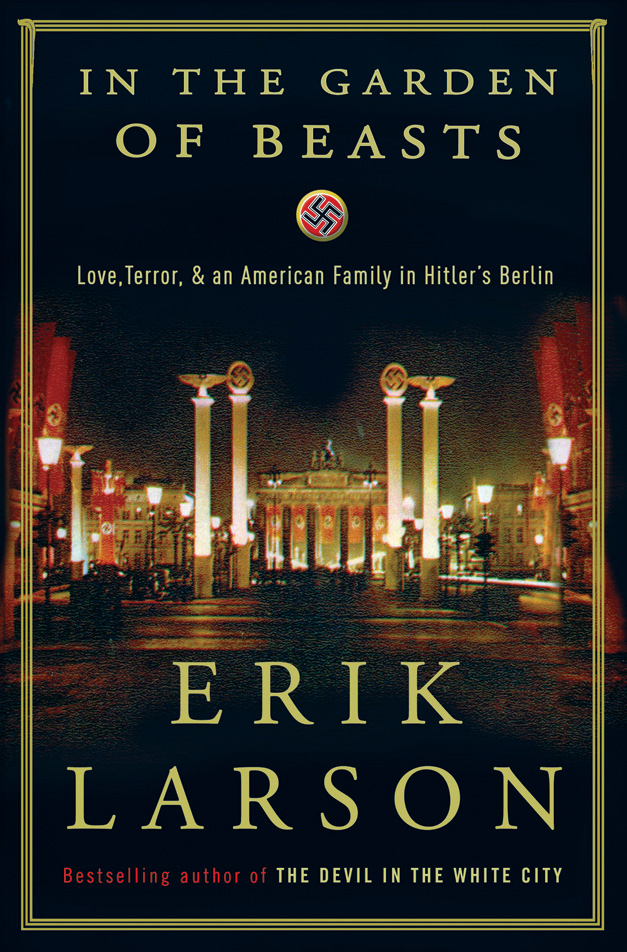In the Garden of Beasts is the story of the U.S. Ambassador to Germany, William Dodd, and his family in Berlin in the mid 1930s, when Hitler is rising to power. Dodd was an unconventional choice for this position, and far from top of the list in potential candidates. He was a history professor and a self professed "true Jeffersonian" in his manner and politics. Larsen does an incredible job documenting Dodd's ambassadorship and the politics of the time. Though I was familiar with the U.S. isolationist stance before World War Two, it was fascinating and frightening to learn about the politics surrounding the way we interacted with Germany during this time.
In 1934, the American Jewish Congress with support from the American Federation of Labor planned a mock trial of Hitler at Madison Square Garden. When Germany caught wind of this, Hitler ordered Foreign Minister Neurath to demand that it be stopped. The American government communicated that because of our belief in free speech, there was nothing they could do to cancel the event, though they did not make, at that time, any kind of statement against Hitler. Larsen makes an excellent point about this:
"One result was a sequence of official protests, replies and memoranda that revealed both Germany's sensitivity to outside opinion and the lengths U.S. officials felt compelled to go to avoid direct criticism of Hitler and his party. The degree of restraint would have been comincal if the stakes had not been so high and raised a question: why were the State Department and President Roosevelt so hesitant to express in frank terms how they really felt about Hitler at a time when such expressions clearly could have had a powerful effect on his prestige in the world?" (231).
It was easier to hide behind the guise of politics? It was easier to turn a head than to get involved with what seemed to be someone else's mess? People pleasing seems like a good temporary answer?
A few pages later Larsen asks, "What was everyone afraid of?" (241). This is one of the overriding questions of the entire book, and one that speaks into not just politics at the international or governmental level, but a personal level. Quietly ignoring things that are wrong offers temporary safety only.
The title of this book is a reference to the Tiergarten, a park in Berlin that was one of the only places in the city where people felt safe to have private conversations. As I think about its symbolism, I can see two sides: hiding one's true thoughts in a garden, rather than bringing them out into the open, or the concept that we all need to have spaces in which we can be alone and be heard away from whatever metaphorical beasts are in our lives: that maybe we need space in order to stop listening to the fear and actually consider what is right?
It is uncomfortable to think about this because speaking out at this time in history could mean death of oneself or family, and when there are people to protect all of a sudden everything becomes gray. So, on that note, all I can say is that I cannot wait to finish reading Metaxas' biography of Dietrich Bonhoeffer and the length that he went for what he believed to be true. More on that later.
Ambassador Dodd was asked to resign in 1938 because he seemed to be taking too bold a stance against the Nazis, even though his actions could be described as silent protest. He spent the remainder of his career traveling and speaking against the regime until his death in 1940. Gah.

No comments:
Post a Comment